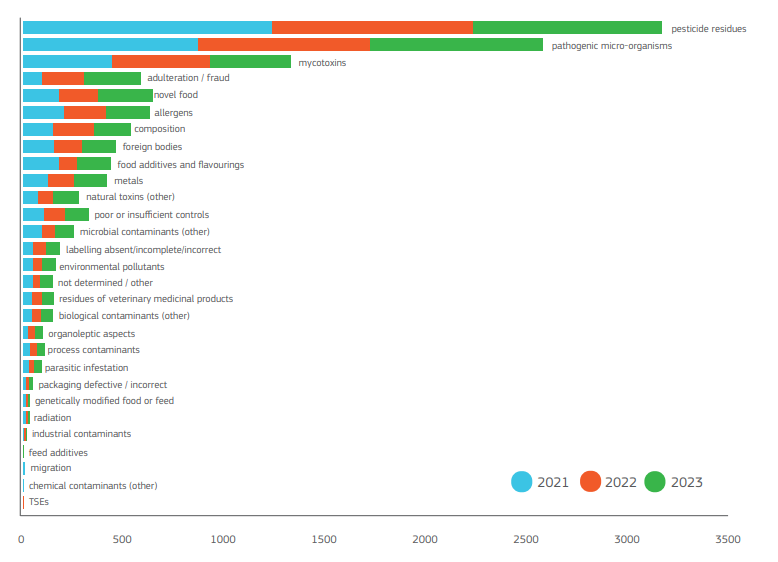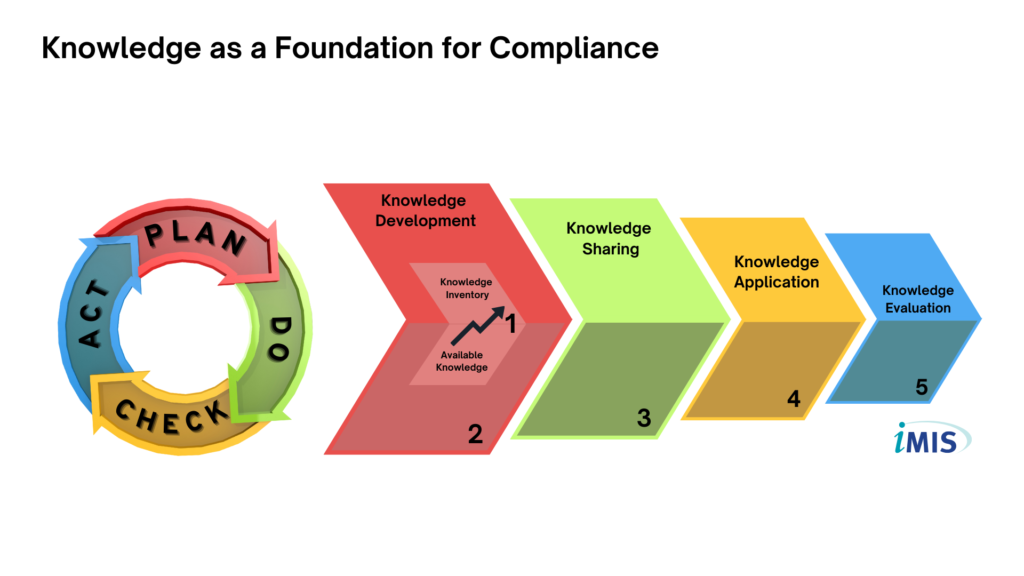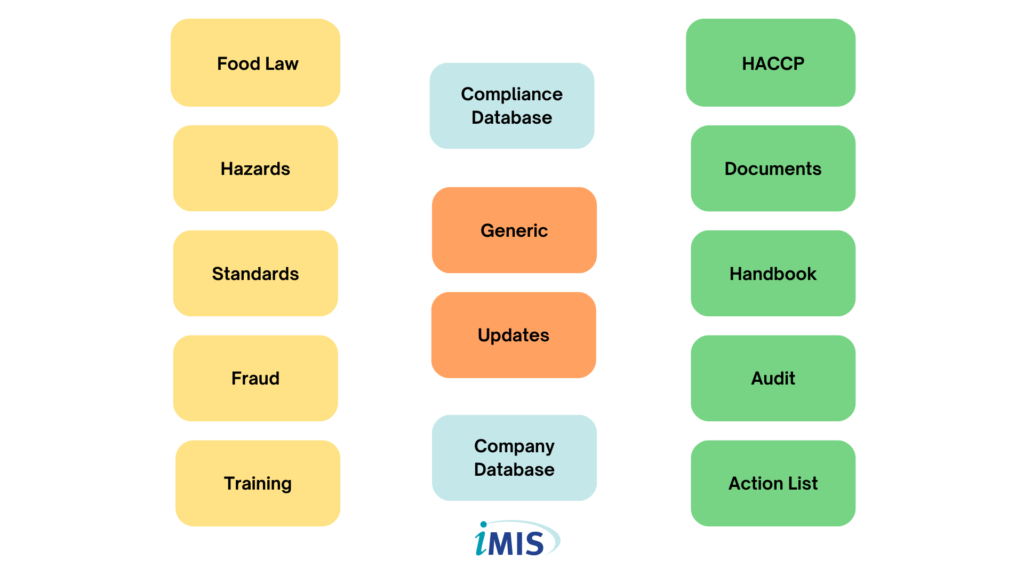Introduction
Product recalls can place a significant strain on food businesses, impacting not only their financial stability but also their reputation and consumer trust. Understanding the root causes of recalls is crucial for implementing effective preventive measures and building a more resilient food safety culture.
This article explores the concept of the Food Safety Knowledge Value Chain, emphasizing its importance in preventing recalls, protecting consumer health, and fostering a proactive approach to food safety management.
Understanding Food Recalls: A Critical Aspect of Food Safety
Food recalls are a vital part of protecting public health. When a food product poses a risk to consumers, a recall is initiated to remove it from the market and prevent further harm. This chapter explores the intricacies of food recalls, focusing on the European context, the common causes, and the significant consequences for food businesses.
What is a Food Recall?
A food recall is a process initiated to remove or correct unsafe or mislabeled food products from the market. This action protects public health by preventing the consumption of potentially harmful food. Recalls can be triggered by a food business operator or mandated by a competent authority, such as a national food safety agency. The type of recall used depends on the severity of the risk and the distribution of the product.
Food Recall Legislation in Europe
The European Union has a robust legal framework for food safety, including regulations governing food recalls. The key legislation is:
- General Food Law (Regulation (EC) No 178/2002): sets the foundation for food safety in the EU. It outlines general principles and requirements, including the responsibility of food business operators to ensure food safety and initiate recalls when necessary. It also establishes the European Food Safety Authority (EFSA) as a key body for providing scientific advice and risk assessment.
- Rapid Alert System for Food and Feed (RASFF): enables the rapid exchange of information between EU member states and the European Commission about food safety risks and recalls. It acts as an early warning system, allowing for quick action to be taken to protect consumers.
RASFF Data: Exposing Weak Links in the Raw Material Supply
The Rapid Alert System for Food and Feed (RASFF) acts as a crucial watchdog for food safety in the European Union, enabling swift action against food-related risks, often leading to product recalls. Analyzing RASFF notifications offers vital insights into recurring food safety problems, many of which originate in the raw material supply, exposing weaknesses in the Food Safety Knowledge Value Chain.
The 2023 RASFF report (Fig. 1) revealed recurring food safety hazards often linked to raw material issues. These include: excessive pesticide residues; pathogenic microorganism contamination from inadequate hygiene and temperature control; mycotoxin contamination from poor pre- and post-harvest practices; food fraud incidents; and increased allergen-related issues due to a lack of awareness among suppliers.
By addressing knowledge gaps and promoting best practices among suppliers, food businesses can proactively mitigate risks and reduce the likelihood of costly recalls.

Consequences of Food Recalls for Businesses
Food recalls can have significant consequences for food businesses, impacting their financial stability, reputation, and operational efficiency:
- Financial Losses: Recalls can be costly, involving expenses related to product withdrawal, disposal, refunds, and potential legal liabilities.
- Reputational Damage: Recalls can damage a company’s reputation and erode consumer trust, leading to decreased sales and market share. Rebuilding trust after a recall can be a long and challenging process.
- Legal Action: Companies may face legal action from consumers or authorities if their products cause harm or violate food safety regulations. This can result in fines, penalties, and even criminal charges in severe cases.
- Disruption to Operations: Recalls can disrupt production and distribution processes, impacting a company’s ability to operate effectively. This can lead to delays, lost productivity, and supply chain disruptions.
Mitigating the Risk of Recalls
To minimize the risk of food recalls, companies should adopt a proactive and comprehensive approach to food safety management. This includes implementing robust food safety management systems, prioritizing supplier control, investing in training, staying informed, and utilizing technology like real-time data management systems.
While compliance with regulations is essential, a true food safety culture goes beyond simply ticking boxes. It’s about fostering a shared understanding and commitment to food safety principles at all levels of an organization, extending to the entire supply chain. This proactive approach is crucial for preventing costly recalls and protecting consumer health.
The Food Safety Knowledge Value Chain
The Food Safety Knowledge Value Chain represents the flow of knowledge and information related to food safety throughout the entire food production process, encompassing suppliers, internal processes, and external expertise. A robust Food Safety Knowledge Value Chain (Fig. 2), can significantly reduce the risk of recalls by addressing potential weaknesses at each stage.

- Knowledge Development: This involves actively seeking and acquiring new knowledge about food safety hazards, regulations, and best practices. It includes staying informed about emerging risks and continuously updating internal procedures.
- Knowledge Sharing: Fostering a culture of knowledge sharing within the organization and with external partners, including suppliers, is essential for building a strong food safety culture. This can involve regular meetings, workshops, and online platforms for collaboration.
- Knowledge Application: Putting knowledge into practice is the key to preventing recalls. This involves implementing robust food safety management systems, conducting regular risk assessments, and empowering employees to take ownership of food safety.
- Knowledge Evaluation: Regularly evaluating the effectiveness of food safety knowledge and training programs is crucial for continuous improvement. This can involve collecting feedback from employees, monitoring key performance indicators, and conducting audits.
The Impact of Knowledge Gaps on Recalls
A significant portion of product recalls stems from issues with raw materials. These incidents often highlight gaps in the Food Safety Knowledge Value Chain, particularly at the supplier level. When a non-conformity arises, conducting a thorough root-cause analysis is crucial. This involves examining the entire knowledge value chain to identify where the breakdown occurred.
Furthermore, over-reliance on external food safety expertise can create vulnerabilities in the knowledge value chain. While external consultants can provide valuable support, companies need to build internal food safety competency to ensure consistent knowledge and effective decision-making on a daily basis.
Building a Strong Food Safety Knowledge Value Chain
To strengthen the Food Safety Knowledge Value Chain and prevent costly recalls, companies should:
- Invest in Supplier Training: Provide regular training to suppliers on food safety requirements, including allergen management, labelling regulations, and good manufacturing practices.
- Foster Internal Expertise: Build internal food safety expertise through training, knowledge sharing, and continuous improvement initiatives.
- Utilize Technology: Leverage technology, such as Quality Management Systems (QMS), to centralize information, track compliance, and facilitate communication across the supply chain.
- Conduct Regular Audits: Conduct regular audits of suppliers and internal processes to identify potential knowledge gaps and areas for improvement.
- Promote a Culture of Food Safety: Foster a culture where food safety is everyone’s responsibility, encouraging open communication and continuous learning.
iMIS Food: Preventing Recalls with Real-Time Compliance
Food recalls can be devastating for businesses, both financially and reputationally. Implementing a robust food safety management system is crucial for minimizing recall risks and protecting consumer health.
iMIS Food is a comprehensive Quality Management System (QMS) (Fig. 3) solution designed to empower food companies with the tools and insights they need to prevent recalls and maintain a strong food safety culture.
How iMIS Food Helps Avoiding Recalls
- Real-time Data Management: Centralize your food safety data to identify and address risks proactively.
- Enhanced Traceability: Trace products, identify contamination, and manage recalls efficiently.
- Supplier Management: Ensure your suppliers meet your safety standards.
- Compliance Management: Stay ahead of regulations with real-time updates.
- Continuous Improvement: Analyze data and foster a culture of food safety.

Conclusion
The Food Safety Knowledge Value Chain is a critical component of a robust food safety culture. By investing in supplier training, building internal expertise, and utilizing technology, companies can strengthen their knowledge base, minimize the risk of recalls, and protect consumer health.
Stay Connected: Join our Newsletter!
Ready to learn more? Subscribe to our newsletter for the latest updates, tips, and exclusive content delivered straight to your inbox!
Sources
- Netherlands Enterprise Agency. (n.d.). Notification of unsafe product. Netherlands Enterprise Agency. Retrieved December 20, 2024, from https://business.gov.nl/regulation/notification-unsafe-product/
- European Commission. (2024). 2023 Annual Report of the Alert and Cooperation Network for food and feed. https://food.ec.europa.eu/document/download/911d49f2-b3ef-4752-8ea3-5f20dbbe9945_en?filename=acn_annual-report_2023.pdf
Related articles to Stop Food Recalls: How to Build a Strong Food Safety Culture
Many customers and visitors to this page 'Stop Food Recalls: How to Build a Strong Food Safety Culture' also viewed the articles and manuals listed below:
